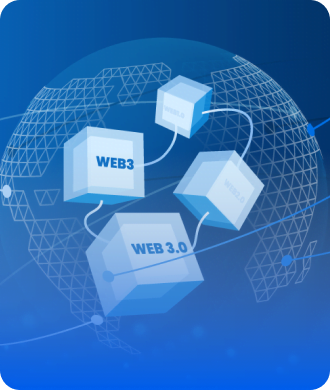
The emergence of smartphones has revolutionized the way we think, consume content, our outlook on life, the way we do business, and everything. Most smartphone users are using Android phones, and that is why Android Mobile App Development is in high demand, and it’s worth giving a chance.
In Google Play Store, there are millions of mobile apps which are working as the backbone of their businesses. From shopping online to buying food, and from entertainment to real estate, online banking, wallets, and even fitness apps. Everything is available at our fingertips. Is that it? No way! After covid-19 pandemic, many on-site companies have also shifted to remote work, and it has been proven very beneficial for them. Apps like; Google Meet and Zoom help people connect with each other to increase productivity. The statement “ You can’t help your business succeed in today’s era without a mobile app ’’ would not be wrong. Online presence has also increased the business profit as well. For Example
Various online makeup stores or clothing brands which have just one outlet in a specific city could also sell worldwide and show their online presence as well, and it turned many small businesses into large ones. Not only this, but these businesses are also using different techniques like giving promo codes on downloading their apps and other attractive packages, etc. Now you have an idea about the exciting benefits of Mobile App Development, and it would not be wrong if I say that many companies are earning handsome amounts of money from it.
Ready to explore more?
Journey To Android App Development
Introduction To The Android Mobile App Development
Android was introduced by Google as a mobile operating system that gained a lot of attention very soon, and recently it is considered as one of the most popular mobile operating systems. You might be thinking that then what is Android App Development, right?
Well, Android App Development is a process in which mobile apps are built for Android devices. These Android applications are specifically designed for your business to support Android mobile phones. The toolkit is required for mobile app development skills in Kotlin, C++, and Java. It is the foundation of getting into Android mobile app development.
If you’re an Android developer or want to be an Android developer, then these are the necessary software toolkits.
- Integrated Development Environment
- (JDK) also known as Java Development Kit
- (SDK) also known as Software Development Kit
Software Development Kit serves the purpose of imitation, debugging, and creation of the applications. Other tools like Java Development Kit and Integrated Development Kit help to interface and access code.
Android Package Kit
Android Package Kit is also known as APK. It is in the form of a file that contains all the essential tools required for the execution of an Android App. These are written in the form of code like images, binaries of the screen size and languages, etc.
What Are The Programming Languages That Are Used For Android Mobile App Development?
There are various programming languages for Android App Development. The choice of these programming languages depends upon the skillset, strengths, and weaknesses these languages provide.
Kotlin
It is a cross-platform and recently google has added it to the official Android app language. It is also able to interoperate with Java programming language via Java Virtual Machine.
Java
The Java build android mobile applications are user-friendly, secure, and available for free.
C++
It is a native development kit, which enables development in the indigenous languages. C++ is considered a more complex language as compared to the other languages.
Other programming languages include; HTML, CSS, and JavaScript.
A Step-By-Step Guide To Android Mobile App Development
Step 01
The first step to diving into Mobile App Development is to define a clear picture of the Idea you have regarding the App you want to develop. Brainstorm the possible challenges you might face while developing the app, and what value it would serve to the users.
The most important thing is that the application should be user-friendly, then evaluate all the aspects like competition and demand of your app. It will help you to explore ways to stand out and make your app unique.
Step 02
For the development of the mobile app, you are required to make a complete plan which includes all the functionalities, mockups, and features to get a visual of the user interface. You also need to keep the monitorization, target audience, technologies, and strategies in mind as well.
Step 03
You need to learn a programming language for Android like Kotlin or Java. If you are at the beginner level of programming then Java is the most suitable option for you. It is considered the traditional language for the development of Android Mobile Apps but Kotlin gained a lot of attention very soon as compared to Java because Kotlin was providing modern features.
Step 04
Understanding the Android Component is very important. It includes the services, broadcast, fragments, activities, etc. If you want to develop an Android app, then it is very important to know the pattern in which these components interact.
Step 05
Create an eye-catchy UI design for your app. The UI designs are the user interface for your app. Explore different layouts while using XML. It includes different buttons, text fields, and visuals as well. These designs provide you with a user-friendly experience.
Step 06
Break down the features you have selected for your Android App Development into minor tasks and then start implementing them one by one.
Step 07
In Mobile App Development testing is very important to ensure that the developed app is bug-free and working properly. For testing, Android Emulators (the physical Devices) are used.
Two types of testing help in identifying potential issues and gathering feedback as well.
- Beta Testing
- User Testing
Step 08
Once you’re done with the testing, trials, and punctuality of your Mobile App. Publish it onto the Google Play Store. Create the account for your app development, set the pricing, and prepare the app assets.
Read and follow the Google Play guidelines for the submission of an Android app.
Step 09
Once you’re done publishing, keep an eye on the feedback as well as reviews to get an idea of where your app is lacking its ability to give its best. You can also release updates to enhance the functionality of an app.
Android Mobile Apps have become a very important part of the digital world because of the vast range of smartphone users, and if you’re building a business then you must develop a mobile app. Various companies like Reactive Space are delivering tailored Android Mobile App Development Services to help businesses grow, and reach their full potential.



